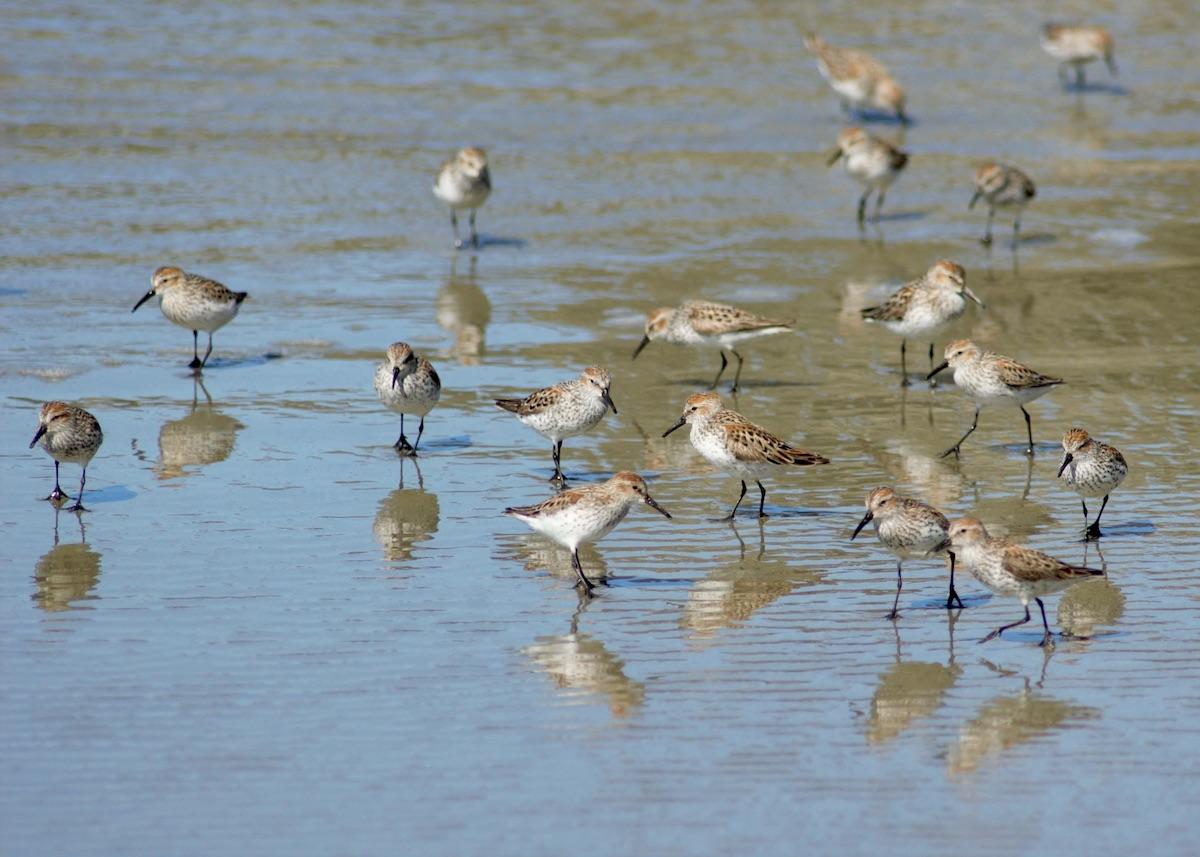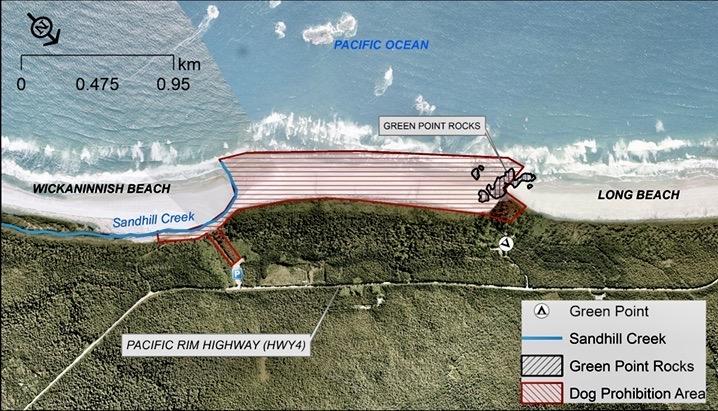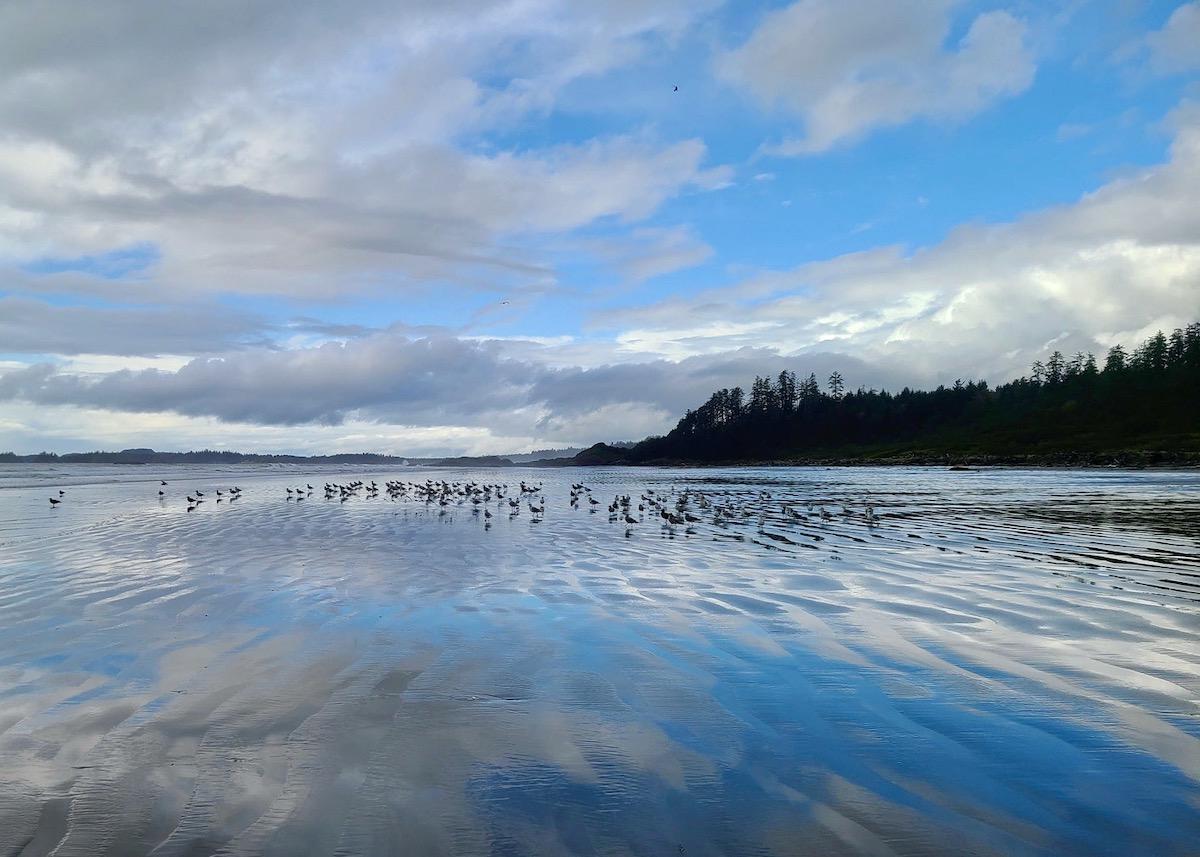
Western sandpipers feed and rest at Pacific Rim National Park Reserve/Parks Canada, S. Tyne
To protect migratory seabirds, Pacific Rim National Park Reserve is launching a seasonal dog ban on Combers Beach from Apr. 14 to Oct. 1.
Dogs won’t be allowed on the beach between Sandhill Creek and Green Point Rocks, including Combers Beach Trail and the boardwalk access to Combers Beach from Green Point Campground. They can still visit all other areas of the Long Beach Unit as long as they’re on leash at all times. This includes beaches, trails, parking lots and in the water.
“In light of our increasing understanding of the importance of the Long Beach area to migratory shorebirds, this limited measure is being taken to decrease disturbance of shorebirds during a critical time of their annual cycle — migration,” Parks Canada said in a written statement.
“Migratory shorebirds depend on the national park reserve as a place to rest and forage for food during long trips between the Arctic and areas as far south as South America. When migratory birds are disturbed, the extra time and energy spent fleeing can affect their survival. The presence of dogs can also contribute to the habituation of wildlife such as wolves who frequent beaches to access coastal food sources.”
The new seasonal ban is a last resort and being introduced on a trial basis to study whether it helps migratory shorebirds and other wildlife.

A map showing the area for the new, seasonal dog ban/Parks Canada
Parks Canada says rules about keeping dogs on leash are often ignored and ongoing research shows these pets negatively impact wildlife.
The area will be patrolled by Parks Canada staff and law enforcement officers. Under the Canada National Parks Act, tickets for a dog off leash begin at $58 ($46 USD) for a first offence, while repeat offences can lead to court appearances and fines up to $25,000 ($19,884 USD.
People who see dogs where they’re not supposed to be are asked to share information on the ban with fellow visitors, or call Parks Canada Dispatch at 250-726-3604 or toll free 1-877-852-3100.
While it may not seem significant to let your dog roam off leash on a beach or trail, Parks Canada says there are more than 100,000 dog visits each year and the impact is cumulative.

A flock of seabirds on Combers Beach in 2021/Parks Canada, N. Hildebrand
The park reserve protects an important junction on the Pacific Flyway — a coastal migratory route annually followed by millions of shorebirds and other birds. More than 500,000 shorebirds, representing more than 30 species, land on local beaches and mudflats twice each year to rest and feed, replenishing their fat reserves, before continuing on their journey.
Off-leash dogs often follow their instincts and chase shorebirds, causing the birds to expend energy reserves they should actually be building. The same impact is produced by visitors carelessly walking, cycling or running through flocks of shorebirds roosting or feeding on the beach. People should stay least 25 meters (82 feet) — five car lengths — away from shorebirds.
Some visitors may be scared of dogs, while bears, cougars pine martens, river otters and other birds that live in the park reserve need space and consideration.
When wolves see dogs off leash, they may approach or even attack them. This puts pets at risk and causes wolves to lose their natural wariness of humans and begin to think of them as a source of food. A habituated wolf may eventually need to be killed.



Add comment